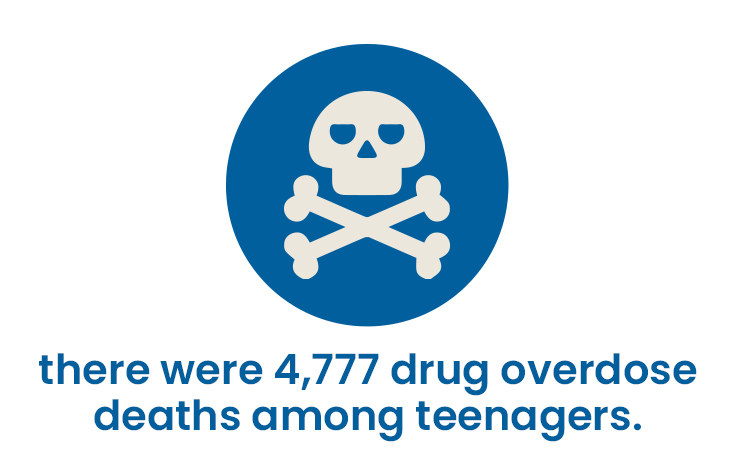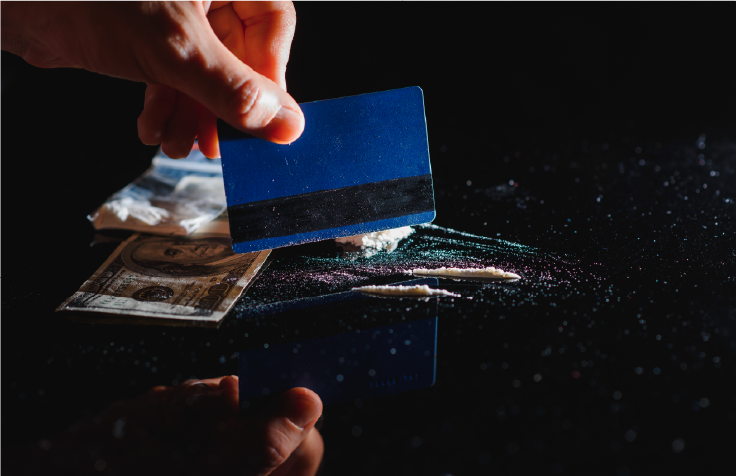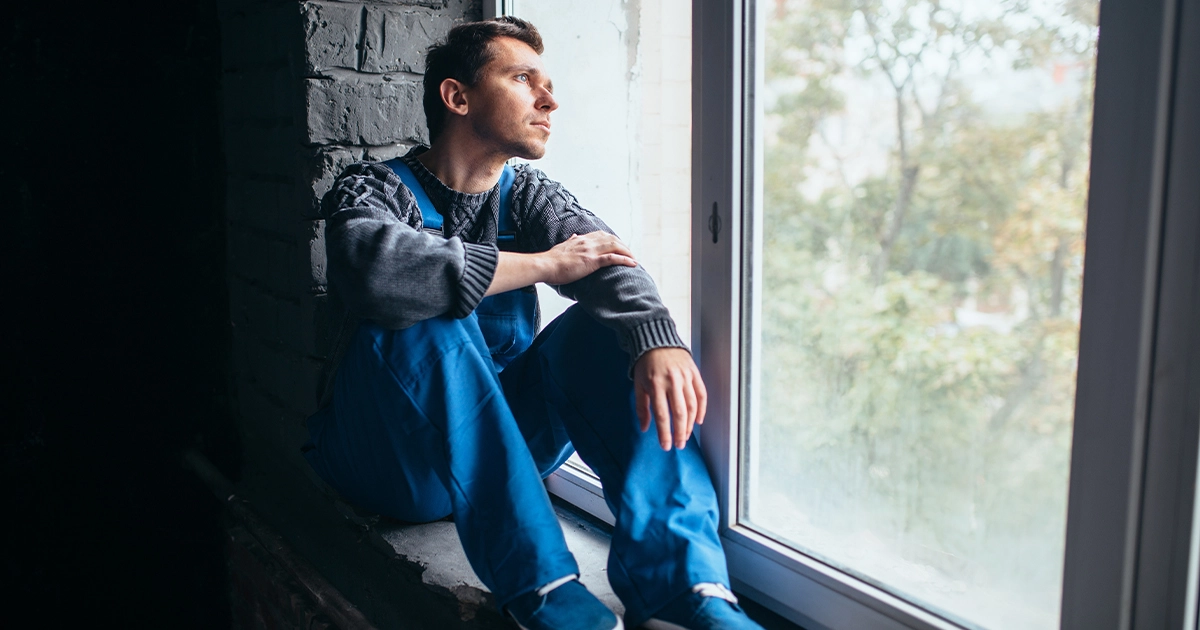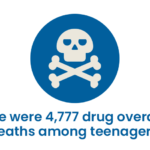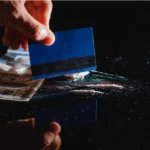Heroin Addiction: Symptoms, Causes, and Treatments
Heroin addiction is a severe substance use disorder (SUD) marked by significant psychological and physical dependence. Heroin is a semi-synthetic opioid extracted from the poppy plant. While heroin is an illegal substance, many other opioids may be obtained legally with a doctor’s prescription. Regardless of how opioids are obtained, it is critical to understand that they are highly addictive and can lead to serious addiction.
Opioids alleviate pain by blocking or lowering the number of pain signals sent to the brain. They also stimulate the release of endorphins in the brain, making the user feel happy, euphoric, or high. Because of these qualities, heroin and other illegal opioids are highly addictive.
If you or someone you care about is battling heroin addiction, getting professional help as soon as possible is crucial.
Treatment Services
Heroin addiction can lead to various physical, behavioral, and emotional changes. That’s why it is important to seek professional medical help when suffering from heroin addiction. Several types of heroin addiction treatment options are available since some people will benefit more from one treatment than another. Because each person’s unique factors and circumstances contribute to their addiction, so individualized treatment is the most effective way to help individuals overcome their heroin use disorder.
The following are some of the most common forms of treatment available at a heroin addiction treatment center.
- Individual therapy sessions, group therapy sessions, or family therapy sessions
- Developing an individualized treatment plan
- Medical evaluation
- Support groups
- Medical detoxification and withdrawal management
- Inpatient and outpatient treatment program
- Aftercare program

Symptoms of Heroin Addiction
The symptoms of heroin addiction are determined by a variety of factors, including the amount and frequency of heroin use, as well as differing from person to person. However, the following physical, psychological, and behavioral/social signs are among the indicators that a person may have a dangerous heroin addiction.
- Persistent flu-like symptoms
- Gastrointestinal problems
- Uncontrollable itching
- Disrupted sleep patterns
- Respiratory problems
- Exhaustion
- Weight loss
- Seizures
- Constipation
- Constricted pupils
- Increased tolerance to heroin
- Loss of menstrual cycle in women
- Regular chest infections
- Blood clots
- Anxiety
- Depression
- Confusion and disorientation
- Extreme mood swings
- Poor judgment
- Feelings of hopelessness and despair
- Impaired ability to concentrate or focus
- Feelings of shame and guilt
- Angry outbursts
- Extremely low self-esteem
- Suicidal thoughts and impulses
- Poor performance at work/school
- Continuing to use heroin despite the negative impact that this has had on all areas of your life
- Devoting a lot of time to obtaining, using, and attempting to recover from the effects of heroin
- Legal problems, including arrest and imprisonment
- Lying or being dishonest regarding your whereabouts, activities, and the extent of your heroin use
- A lack of interest in hygiene or personal grooming
- Lack of interest in once-cherished activities
- Financial problems
- Social withdrawal and isolation
- Interpersonal relationship breakdowns
Because of the effects of heroin on the brain and body, the substance has the potential to cause significant physical and psychological dependency, which can lead to addiction. When a person gets addicted to heroin, they will display a variety of signs, including:
- Relationships issues
- Increased tolerance
- Financial strain
- Difficulty holding down a job
- Continuing to use heroin despite the negative consequences
- Inability to take care of themselves
- Not being able to quit using heroin, despite having the desire to stop
- Loss of interest in activities or hobbies
- Physical and mental health complications
If you observe the above-mentioned signs in yourself or a loved one, it’s time to seek heroin addiction treatment. The more severe the signs and symptoms, the more serious the heroin addiction.
To recover from heroin addiction and live a happy, sober life, seek professional treatment at The Haven Detox. Contact us at (561) 328-8627!
Recovery from heroin addiction is not easy, and there is no fast, simple fix or cure. A person may continue to use heroin even if it harms their friendships and family relationships. It’s not only because they don’t care about their loved ones but because their brain has changed as a result of the addiction.
You may feel desperate and want a loved one to go into treatment or get help, but you cannot compel a heroin addict to go to rehab. However, you may help them in a variety of ways, including:
- Educate yourself on addiction
- Express hope that change is possible
- Maintain your commitment to loving and encouraging them
- Be honest when expressing your concerns
- Maintain healthy boundaries and stick to them
- Avoid blaming or accusing the person of doing something wrong
- Realize that the person can’t stop using without help
- Research treatment facilities and call rehabs to discuss treatment options
- Offer to accompany your loved one to the doctor
- Offer support after they complete treatment
If your loved one is experiencing severe signs of heroin addiction, you should seek immediate medical attention and call The Haven Detox at (561) 328-8627!
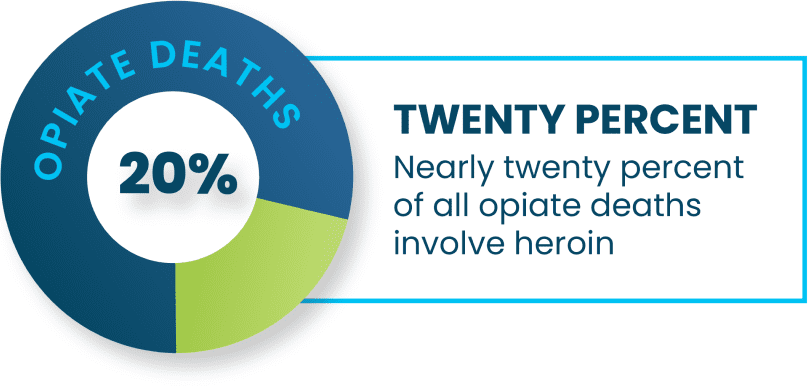
Risk Factors and Causes of Heroin Addiction
There is no one cause of heroin addiction; however, several factors usually contribute to the addiction. Some of the causes and risk factors for heroin addiction are as follows:
Genetics alone won’t lead someone to get addicted to heroin, but if they start using heroin, genetics may increase the likelihood that an addiction will develop. A person becomes more suspectable of addiction if they have a family history of addiction, especially if they have a family member who suffers from a substance use disorder. Additionally, some people also have specific personality traits that may make them more prone to addiction once they start using heroin.
Heroin use changes the way the brain experience pleasure, and if a person takes heroin on a regular basis, the nerve cells begin to change. When these changes take place, a person will require more heroin to compensate for the missing neurotransmitters. Regular heroin use also inhibits brain functions such as information processing, impulse control, and communication. As a result of their heroin addiction, a person may compromise their safety or others.
Some people use heroin to self-medicate and relieve mental health symptoms. Heroin can give temporary respite from unpleasant symptoms and feelings, but it often aggravates mental health disorders.
Peer pressure, drug exposure, and family attitudes and traditions are all environmental factors that contribute to the development of heroin addiction. For example, if a person has friends who use heroin, they may be tempted to take the drug while socializing with them in order to feel included.
When people are anxious or lonely, they may resort to drugs to help them deal with those unpleasant feelings. Once they find temporary relief from the feelings of stress or loneliness, they will begin to rely on heroin anytime they need to cope with unpleasant feelings.
If a person has previously used drugs and developed an addiction, they are more likely to develop an addiction to heroin. People who have previously used opioids or prescription medicines may develop a heroin addiction because the substance affects the opioid receptors in the brain. Heroin usage can cause cravings, relapse, and increase the chance of co-occurring addictions.
Other risk factors and causes for heroin addiction include a lack of social support, a history of trauma, and low self-esteem. The likelihood of heroin addiction increases when multiple risk factors and causes come together. When an individual gets addicted to heroin, it can become difficult to stop without professional assistance.

Effects of Heroin Addiction
Heroin use has a variety of short- and long-term impacts on the brain and body. When a person becomes addicted to heroin, it has a detrimental impact on their physical, emotional, and social well-being. It’s critical to understand the consequences of heroin so you can recognize when it’s time to get treatment for yourself or a loved one.
Short-term effects of heroin addiction include:
- Drowsiness
- Small pupils
- Slowed breathing
- Feeling sick
- Decreased heart rate
- Loss of interest in activities or surroundings
- Sudden behavioral changes
- Being hyperaware of the surrounding environment
- Clouded thoughts
- A temporary feeling of euphoria
The short-term effects of heroin might last for a few hours. Once these effects wear off, a person may feel depressed and desire to take heroin again to boost their mood. Repeated heroin use may swiftly change brain chemistry and lead to addiction.
The impact of heroin addiction on a person’s health is determined by a number of factors, including the person’s current health status, weight, sex, volume of drug intake, method of drug intake, length of abuse, concurrent use of alcohol or other drugs, and the presence of an underlying psychiatric condition.
After heroin use, a person may experience the following health-related effects:
- A trance-like state
- Muddled thinking
- A euphoric rush
- Nausea, vomiting, and appetite loss
- Severe itching
- Drowsiness
- Unnatural relaxation
- Runny nose and watery eyes
- Warm, flushed skin
- Small pupils
- Slow breathing
- Slow heart rate
As an individual continues to use heroin, another health problem develops, which is a physical dependency. Whether the substance is legal or illegal, physical dependency is the body’s reaction to the drug’s continued presence. Withdrawal and tolerance are the two main hallmarks of physical dependency. Surprisingly, the body adapts to drugs to promote survival, but the body can undermine survival via the natural process of tolerance. Over time, a person will require more of a similar substance to attain the desired effects. As the quantity of the drug increases, so does the risk to the user’s health.
Drug addiction and relationships are intertwined. The addict’s change in character and behavior toward their loved ones determines how substance abuse affects relationships. The effects of heroin abuse on the brain include changes in mood, cognitive function, and even physical changes. The longer an addiction last, the more likely it is that the person will change. This can result in putting a serious strain on relationships, causing them to weaken. There are numerous effects of heroin addiction on relationships, such as:
- Loss of trust
- Violence as a result of addiction
- Enabling behaviors
- Affected sexual intimacy
Many employees struggle to perform at their full potential due to the harmful negative of heroin. Employees who are addicted to heroin are less productive, take more sick days, and are more prone to workplace accidents and injuries. They are also more prone to have conflicts with coworkers and supervisors, as well as make errors.
Other effects of heroin addiction on employment include:
- Displaying extreme mood swings
- Poor decision making
- Missing appointments and deadlines
- Lack of personal hygiene
- Taking a long time to complete easy, common tasks
- Tardiness/sleeping on the job
- Facing trouble concentrating or recalling instructions or details
Heroin abuse can impair your judgment abilities and lower your inhibitions, resulting in poor choices and risky behaviors or situations, such as:
- Relationship problems
- Poor performance/attendance at work or school
- Increased chances of committing violent crimes
- Car accidents
- Legal issues
- Engaging in risky behaviors
- Problems with other substance use
- Increased risk of attempted or completed suicide
Get Help
If you’re suffering from heroin addiction, getting help as early as possible is essential. Alcoholism is a severe illness that can lead to many problems. Getting help as early as possible can significantly improve your chances of recovery. Call us to get started with treatment.
Our resources are available to help you overcome your addiction with evidence-based therapies and innovative treatments proven by medical science to effectively manage your addiction. Our admissions counselors can help you learn more about the disease and how to keep it out of your life. Contact us confidentially today.

Treatment of Heroin Treatment
When someone quits using heroin, they may suffer unpleasant withdrawal symptoms such as cravings and physical discomfort. Heroin withdrawal may be unpleasant and, in some situations, harmful to one’s health. For example, long-term dehydration caused by vomiting or diarrhea might result in medical issues that necessitate medical attention.

Medical Detox
A medication-assisted treatment program, medical detox, can help you successfully control withdrawal symptoms and feel more at ease during the treatment process. Medical professionals will monitor you 24/7 to ensure that the medication is working and that you are as comfortable as possible.
Naltrexone, Disulfiram, Methadone, and Buprenorphine are some of the pharmacologic medications used throughout the detox process. An addiction expert will assist you in determining which medicine is appropriate for you in order to help you to feel secure and comfortable during your treatment.
Inpatient Rehab
An inpatient treatment program assists you in recovering from heroin addiction in a secure and sober setting. When you may experience cravings for heroin while detoxing from heroin, you will not be able to give in to temptation while in residential care. Under the care and supervision of professional medical staff, you will be able to conquer the most difficult part of your recovery process.
Inpatient treatment programs provide patients with a routine that limits the number of decisions they have to make, allowing them to concentrate on their treatment rather than their cravings and unpleasant feelings.
In addition, patients will have access to a withdrawal management program to assist them in managing their lingering symptoms. While physical withdrawal symptoms might disappear quickly, psychological withdrawal symptoms can linger considerably longer. In inpatient rehab, you will have 24/7 access to medication and counseling to help you manage your feelings.

Therapy
No matter whether you choose inpatient or outpatient treatment, you will participate in a variety of therapies to help you get to the core of your addiction. Therapy can assist you in reorganizing your thoughts and improving your views of yourself and your addiction. Therapy will also assist you in treating any underlying medical disorders or trauma that may be contributing to your addiction.
The following psychotherapy and behavioral therapies are used to treat heroin addiction:
A CBT program will examine your present thought patterns and how they relate to your addiction. You’ll also learn coping techniques to assist you in managing cravings and triggers when you re-enter society. You’ll be able to concentrate on solutions rather than problems.
DBT programs will help you learn how to control your emotions in stressful times. DBT can be utilized to treat addiction as well as underlying mental health issues. The idea is to become more aware of your surroundings and accept your existing mental condition. You may make a positive change in your life by changing your thought processes.
Addicts in treatment may find it difficult to accept their situations and feelings associated with addiction. An ACT program assists you in accepting where you are in order to set goals for the future and commit to your treatment. You’ll be able to focus on the big picture rather than past blunders or worries about the future.
While some people are devoted to their recovery from the beginning, others may be reluctant to treatment because they do not feel their addiction is affecting their lives negatively. Motivational interviewing assist these patients in understanding the necessity of addiction treatment and actively engages them in their therapy. A counselor will inquire about your goals and how heroin abuse may be affecting your life, such as your employment or family life.
Once you enter treatment, an addiction professional will assist you in determining which sort of therapy is best for you. You’ll probably go through several types of treatment to get to the bottom of your addiction and improve your physical and emotional health.
Ongoing Treatment And Relapse Prevention
Some heroin addicts seek treatment in outpatient rehab. Outpatient treatment is often recommended for persons suffering from mild addictions. It enables those in recovery to get counseling and medications while continuing to work and live their personal lives. Individuals seeking treatment should first meet with a drug addiction expert for a medical assessment to determine the proper level of care that best matches their unique needs.
After heroin rehab, ongoing treatment is critical to stay sober. Meeting with the therapist on a regular basis helps many recovering heroin addicts stay focused on their recovery. Therapists can assist addicts in identifying and overcoming triggers. They can also help you cope with heroin cravings.
Support groups, such as Heroin Anonymous (HA) and Narcotics Anonymous (NA), are also effective for many people when it comes to relapse prevention.
Get Professional Heroin Addiction Treatment at The Haven Detox
Heroin addiction may have a wide-ranging impact on a person’s life. The longer a person takes heroin, the more issues with their physical and mental health they may have. However, the good news is that you can overcome your heroin addiction and improve your quality of life. The Haven is here to assist you with that. We take pride in providing our patients with the finest service possible to guarantee a safe and healthy recovery.
Our medical staff is enthusiastic about our work at our addiction treatment center. We offer the highest quality treatment and therapy. We will motivate you to change via self-discovery and effective treatments. We offer a comprehensive array of heroin treatment services, including medical detox, residential rehab, therapies, and more.
You want to live a healthy, safe, and fun lifestyle. You can get it at The Haven Detox! Contact us at (561) 328-8627 today to get started on the path to recovery.
Frequently Asked Questions
When detoxing from heroin, you may be concerned about how long the drug will remain in your system. Several factors influence how long heroin stays in your bloodstream, including:
- Length and severity of your heroin addiction
- Body mass
- Liver problems
- Interactions with other drugs
In general, the withdrawal period will begin within 12 hours of your last dose. The physical withdrawal symptoms usually go away within a week, but the psychological symptoms might last longer. Official treatment will assist you in managing these symptoms as well as developing the skills necessary to overcome your triggers and avoid relapse.
If a person gets addicted to heroin and suddenly stops using, they can suffer withdrawal symptoms that, if not treated, can be severe and life-threatening. Withdrawal symptoms are unpleasant and might discourage someone from quitting heroin. Among these withdrawal symptoms are:
- Digestive issues
- High heart rate or blood pressure
- Uncontrollable shaking
- Intense cravings
- Sleep disturbances
- Sweating or cold flashes
- Mood swings
- Anger or rage
- Frustration or irritability
- Restlessness

